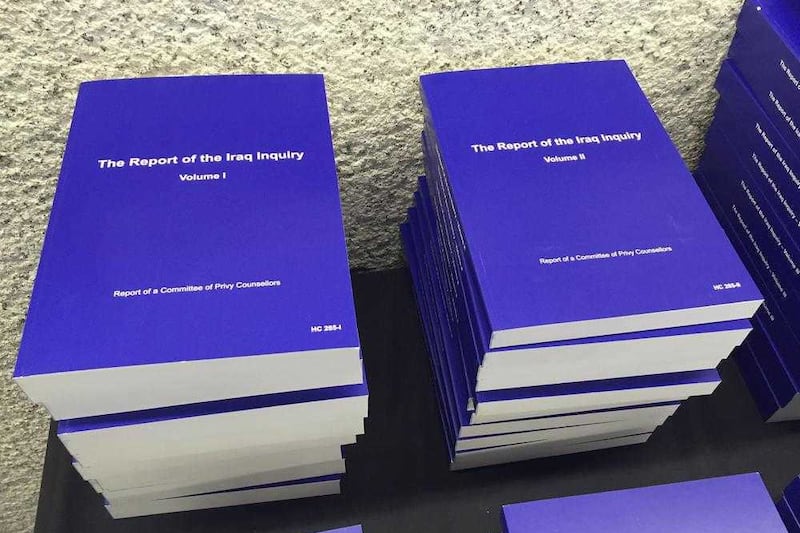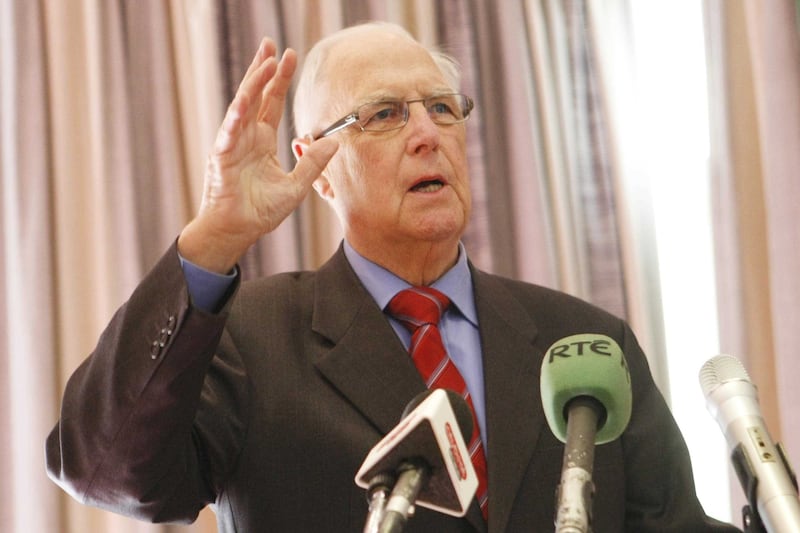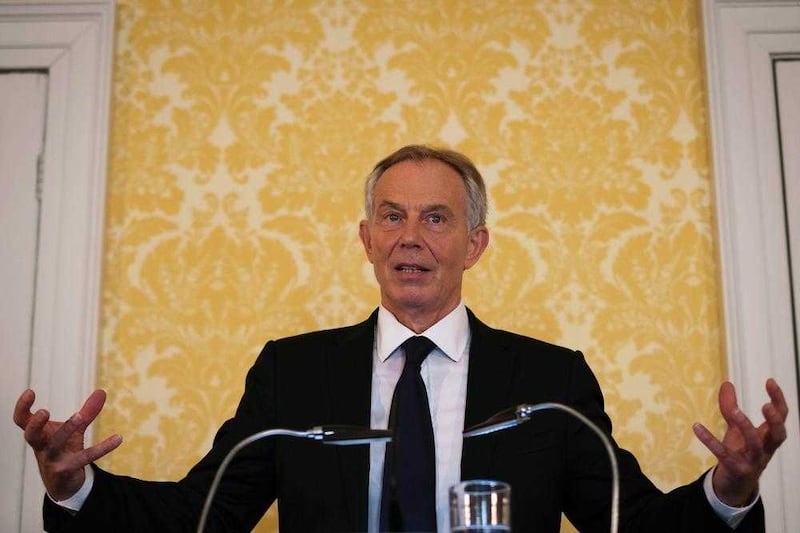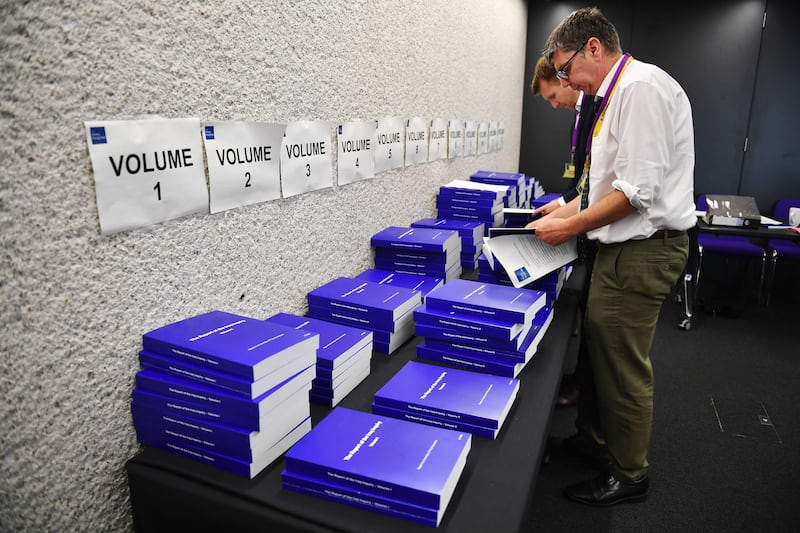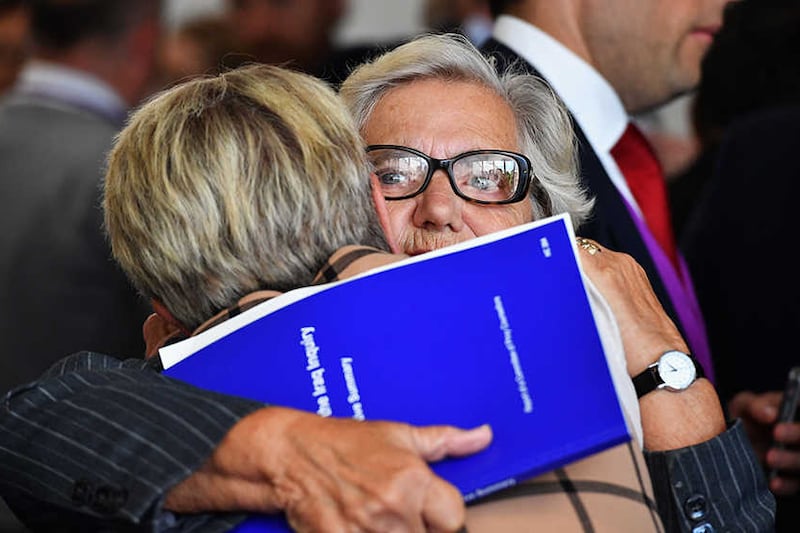LAST Tuesday night, Frank McGuinness's intense drama Observe the Sons of Ulster Marching Towards the Somme opened at the Lyric theatre.
The depth and humanity gnawed the nerves. Friendly dialects and flinty dialogue, conjuring ghosts long dead and tapping memories long forgotten. Its horrors and its humour, all too familiar for those who've lived conflict.
And the Lambeg drum rattling again in July, the threatening tremor that took me back to worried summer twilights as a boy in Antrim town. Yet in this drama, its thunder is desperation not domination.
The Sons of Ulster, who died despite their differences. Powerful and poignant stuff almost 100 years to the day after the Somme massacre.
The next morning (last Wednesday), another voice from the north's past also spoke about war.
Sir John Chilcot, former head of the NIO, published his inquiry's report on the 2003 invasion of Iraq.
The Chilcot report's 2.6 million words, comprising 12 volumes, after seven years, may speak to the families of 200 dead British citizens. But there is little comfort in it - not for them, nor the estimated 180,000 dead Iraqis and one million displaced people.
The main focus understandably fell on Tony Blair and the issue of accountability.
But the discourse of the past seven days is incomplete. The natural attack lines against Mr Blair have missed the seminal recommendations from Mr Chilcot.
For the Chilcot report isn't simply a post-mortem on the past. It's also a template for `legitimate' future British warfare. As such it has established a new doctrine for publicly considering war in Britain.
The `Chilcot doctrine' has fixed public discussion on `how' to do war `legitimately' - no longer `whether' to do war as society.
The report has written lessons "of general application" for all future British `interventions'. At its core is the inevitability of future warfare.
Never again will British society's philosophical choice be framed as war versus peace, or violence versus pacifism. Society's debate will now simply be about the processes of `legitimacy' versus `illegitimacy', case by case.
The underlying premise is for continuous, cyclical military action - in some shape or form. And public discourse has been shifted. That is at the essence of the Chilcot doctrine.
It is a sobering reality, because children born today, this morning, will be the losers - of their lives. They will die, 20 years from now, on gravel paths and dusty deserts, as young soldiers and terrified civilians.
As a generation, we haven't developed any alternative to the apparent inevitability of state warfare. Yet we are now writing today's children into tomorrow's chapter of the same scripted suffering. That's an appalling human failing by us all.
It doesn't matter that the Chilcot report couches war as a "last resort". War is now permanently on the options list - always on the table.
So what happens the next time egotistical politicians or itchy generals lose the plot (or the argument)? Will they wade the 12 volumes of the Chilcot report's careful analysis and patient detail before sending others off to die? Not likely.
Instead they'll feed the demands of media deadlines and the needs of military careers. And they'll maybe try to tick some of the Chilcot report' s `legitimacy' checklist (maybe).
Ironically, Sir John Chilcot is a pre-eminent political planner within Britain's permanent government. He strongly influenced the 1990s diplomatic model of funnelling the north's armed conflict into manageably narrow elite political negotiations.
Yet at 77 years old, Sir John has now shaped a framework for legitimising British military actions that will apply 20 or 30 years after he's gone. And that's the key to understanding the Chilcot report.
Legitimising future warfare is about the status of the state; it's not about the reputations of those who die. Preparing for new wars in that context is now Britain's most unbending strategic agenda. Where will it end?
In the midst of the Brexit maelstrom, these issues pose penetrating challenges for Ireland. (As does Theresa May's coronation as new prime minister.)
This island's future engagement with London must not be dictated by edgy British isolationism, but rather by intensified European internationalism.
Our unique island-wide identity needs to shine through as a unifying and confident counterpoint to Whitehall's inward-facing military defensiveness.
Our people need to positively embrace a mind-set of greater cooperation - not negative conflict - as a new generation is born today.
In building bridges to that collective future across Ireland, we should now be proclaiming an alternative all-island vision to the self-fulfilling inevitability of 21st century warfare under a post-Brexit Britain.
For we know the cost of war. And somewhere in the Somme lie lessons we must remember.



